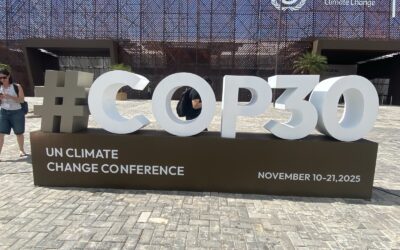Biofuelwatch has completed a new report on yet another technology that requires massive quantities of biomass, “BECCS”, or “Bioenergy with Carbon Capture and Sequestration.
The idea behind BECCS is that bioenergy (here referring to any and all forms, from corn ethanol to burning wood for electricity) is “carbon neutral” and that capturing the carbon emissions and burying them underground would render the process “carbon negative”. As such, many are advocating BECCS as a good candidate technology for climate geoengineering. IPCC and others have already referred to it as “essential” to achieving emissions reduction targets under various scenarios.
Yet there are a multitude of scientific and other reports that have soundly challenged the carbon neutral myth, primarily a myth perpetrated by the biomass electricity industry. If bioenergy isn’t “carbon neutral”, then capture and storage certainly cannot make it carbon negative.
Making the claims even more preposterous is the little known fact that most BECCS projects to date involve capturing CO2 from ethanol refineries and utilizing it for “enhanced oil recovery”. This is because capturing the pure stream of CO2 from fermentation is considerably less expensive than from “messier” gas mixtures. Few would ever consider corn ethanol to be carbon neutral. Far from it in fact. Many analyses indicate that it results in more greenhouse gas emissions than the petroleum that it supposedly replaces. After capture, ethanol CO2 is transported, via pipeline usually, and then pumped into depleted oil wells to force out the remaining difficult to access oil. The fossil fuel industry sees massive profits to be made from accessing that oil. So, in effect, BECCS is promoted as a climate saviour, based on faulty assumptions, but in fact is providing a lifeline to fossil fuel industries. BECCS is providing an affordable “testing ground” for CCS in general, to later be applied to coal and other fossil fuel powered processes. CCS is the technology behind so-called “clean coal”. New coal facilities are being constructed based on the “promise” of CCS being available in future, and the same is true for coal/biomass cofiring facilities.
BECCS is one of several “biosequestration” technologies discussed for climate geoengineering. Biochar is another. Both would have to be scaled up on a truly massive scale to have any effect whatsoever on atmospheric CO2 levels. For example, a recent global assessment of biochar’s potential concluded that it could capture 12% of global greenhouse gas emissions annually if scaled up, but this would require 556 million hectares of dedicated biomass plantations in addition to collection of most crop and forestry residues and most animal manures. This assumes biochar works as claimed, providing stable carbon sequestration, an assumption that is simply not supported by research.
BECCS and biochar both rely on faulty logic about “carbon neutrality”, and aim to manipulate the carbon cycle on a global scale. Both technologies appear very likely to worsen climate change with massive emissions resulting from growing, harvesting and transporting huge amounts of biomass, including increased use of fertilizer, agrichemicals and water. Biofuelwatch contributed to the recent Convention on Biological Diversity secretariat’s report on climate geoengineering ( http://www.cbd.int/doc/publications/cbd-ts-66-en.pdf)
For our full report on BECCS: http://www.biofuelwatch.org.uk/2012/beccs_report




